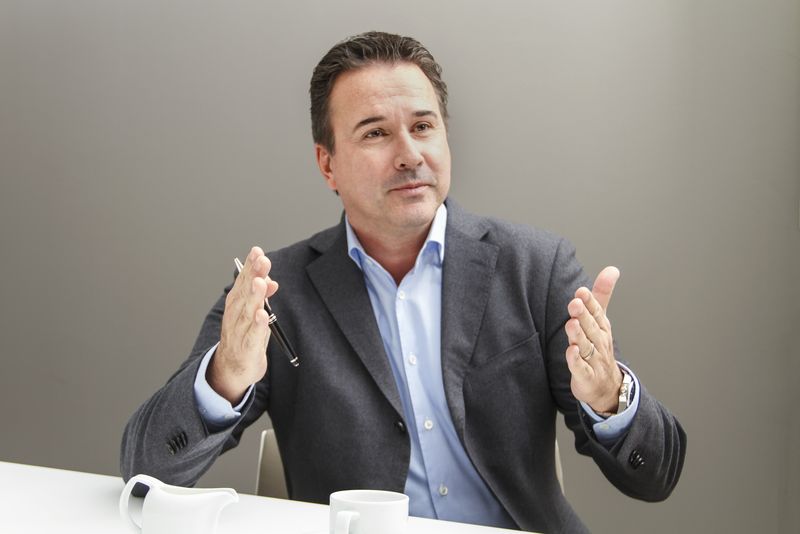A strong sales team was one of the factors for the history of Bahlsen’s success.
Interview with Michael Hähnel.
A strong sales team was one of the factors for the history of Bahlsen's success. Is that still the case today?

Definitely. It is not enough to bake good biscuits if you can't sell them. But the modern sales department has little in common with the work done by the travelling salesmen a century ago.
How do you mean that?
The personal contact to the retailers used to be of crucial importance. The individual merchant decided if Bahlsen products or those of the competitor were to be stocked on his shelves. In Germany, we only deal with a few large partners today, like the REWE or Edeka supermarket chains. Working together is considerably more fact-based. One speaks of a good's rotation: How often is a product sold from the shelf? Retailers keep exact score, and if you don't reach the goal, you are off the list. All relevant data is constantly available: What stocks exist and what is the scope of a product. Reorders usually take place automatically.
Does it matter where a product is placed in the supermarket?
Absolutely. We know much more today about how people go shopping. The most important products like milk, water and laundry detergent stand on the shopping list. Hardly anyone goes shopping in order to buy biscuits. 70% of decisions concerning what lands in the shopping cart are made in the store. That is why it is extremely important to know as much as possible about the buyers and their behaviour.
That means?
We think a lot about the consumer, i.e. those who eat our product. But the consumer is not always identical with the buyer. In the case of Leibniz Zoo, children are the consumers, the mothers, however, are inmost case the buyers.
Are there different forms of buyer behaviour?
Certainly. There are studies on how men and women walk through supermarkets. Men take the shortest path to the shelf where they can find the product they are looking for. Women generally don't go directly to the shelf they want; they take other paths and are more interested in items that are not necessarily on their shopping list. We adapt our secondary placements sites or promotions depending on the target group and shopping location.
What will the sales department of the future look like?
I am convinced that sales in the classic sense will likewise be indispensible in the future. But because of the Internet, the consumer increasingly expects to be able to get any product at any time, day or night. If I get the urge for a biscuit at 2 o'clock in the morning, I can't wait until the supermarket opens at 8 o'clock. We have to be present with our product where the consumer is. That means kiosks, filling stations, but also online sales and social networks are becoming increasingly important for us.